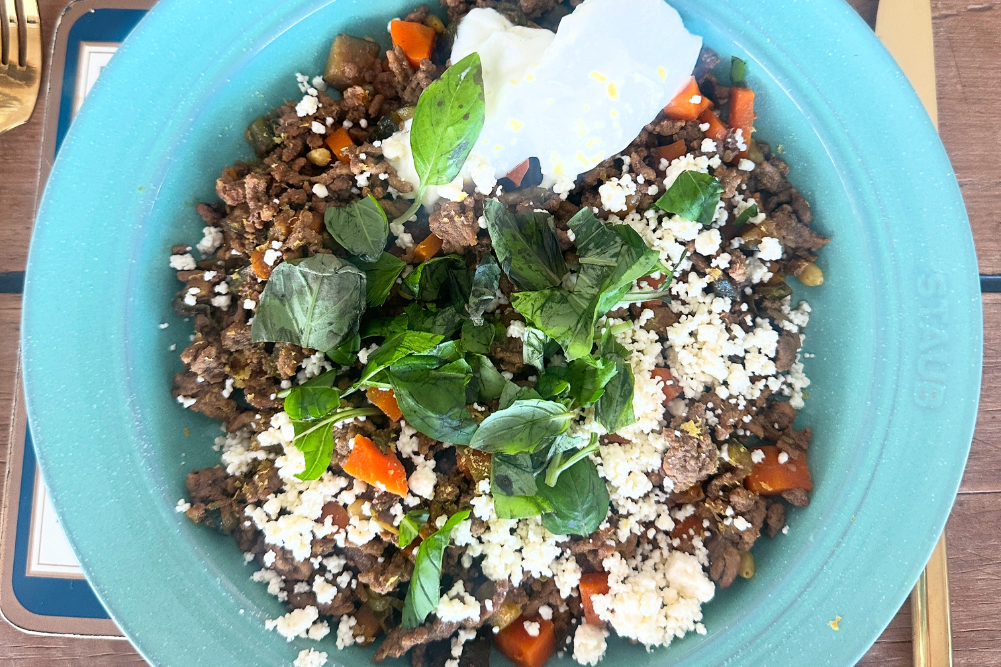The psychology of conspiracy
Conspiracy narratives have been circulating since humans started theorising to interpret the world around us. There is historical evidence of conspiracy theories during disease epidemics and in times of societal crisis, dating back to the Roman era of 64 CE.
It can be easy to dismiss certain conspiracy theories as paranoid nonsense; however, belief in conspiracy narratives is very widespread. For example, an international survey that took place in 2020 and included 28 countries revealed that one third of people believed a “foreign power/other force” caused the COVID-19 pandemic.
Conspiracy theories offer an alternative ideological framework to explain the reason for an unforeseen threat or crisis. We intuitively process situations that threaten our sense of control and seek an explanation to resolve the uncertainty. Believing that a stressful life event has been orchestrated by a group of malevolent actors may provide some degree of reassurance and promote a feeling that we have regained a level of control.
Where do they originate?
Conspiracy theories often originate during a crisis, after a natural disaster or in times of political or social upheaval. The COVID-19 pandemic brought with it a significant increase in conspiracy rhetoric. Fear of the unknown, economic uncertainty and significant restrictions on personal freedoms translated to a loss of trust in government officials for many people.
There are also numerous examples throughout history of conspiracy narrative used as a political device. In recent years, consider the storming of the US Capitol building, the plethora of COVID-related conspiracy narratives and the impact of climate change denial. The term “fake news” has become part of mainstream vernacular and has infiltrated social media platforms, at times causing fear and anxiety. When wielded by leaders or authority figures, it can undermine political action and incite violence.
What drives people to follow?
There are three fundamental psychological needs that must be metfor humans to flourish: competence, autonomy and relatedness. When these needs are not satisfied, people seek to fulfil them. Conspiracy theories generally take hold following an adverse event that diminishes an individual’s sense of control (autonomy), ability to make sense of the world (competence) and connection to others (relatedness).
People adopt conspiracy beliefs to regain a sense of control in a situation that feels out of control. They seek information that reinstates their perception of competence and autonomy. When this information isn’t available, they may engage with non-scientific explanations.
However, instead of providing the stability the individual is seeking, adherence to conspiracy narrative can lead to a greater sense of powerlessness. Ultimately, it’s not based on factual data, so the perceived sense of competence and control erodes over time.
The COVID-19 pandemic is, once again, the perfect example. People around the world felt scared and powerless when the pandemic took hold. Extreme uncertainty coupled with anxiety around potential illness or even death and the emotional turmoil caused by lockdowns provided the perfect storm of conditions for conspiracy rhetoric to take hold. While we waited for facts and data to become available, individuals were more vulnerable to the influence of non-factual information.
The human brain is wired for belonging and acceptance. In tribal days, the absence of recorded scientific facts meant reliance on instinct, experience and cultural storytelling. Threats were everywhere and social cohesion was paramount to survival. If you were ostracised from tribal life you were at the mercy of predators, so you adopted the beliefs and behaviours of your tribal group as a means of inclusion.
Our social networks still exert influence over our beliefs. Our brains may have evolved to process complex political and scientific information; however, our neural networks still favour herd mentality. If your social circle includes conspiracy theorists, chances are you might be somewhat influenced by their ideas.
What drives people to share?
There is emerging research to suggest that some people will share information they know is not accurate, driven by a desire for social connection. They may be willing to trade accuracy for belonging if they believe that sharing the conspiracy theory will generate higher social value than sharing factual news. Perhaps unsurprisingly, social media is a platform for such activity, as it’s used by individuals who are motivated by a desire to develop social bonds and belong to groups.
There are also many examples of digital marketers and influencers drawing on conspiracy narratives to peddle their products. This is most evident in the Australian wellness industry. With its focus on individual choice, alternative health and for some a mistrust of government, the ideals of the wellness industry are vulnerable to conspiracy rhetoric. Influencers with significant follower counts can easily circulate claims that are not based on scientific evidence.
Consequences of conspiracy rhetoric
Unfortunately, there can be negative health, environmental and social consequences when people follow a narrative that is not backed by research or factual data. Conspiracy theories most often follow a narrative that engineers distrust toward authorities or an “out- group”. Not surprisingly, studies show that people decrease health-seeking intentions when their trust in health professionals has been undermined. Individuals are less likely to exhibit environmentally friendly behaviours if influenced by climate change denial. Such conspiracy narrative can become an obstacle to evidence-based action and positive change.
Adverse events that cause fear and a perceived lack of control can also lead to an increased incidence of prejudice. Perceived threats may be attributed to “out-groups” that are subsequently viewed as hostile. A conspiracy belief develops that serves as a social motive of protecting one’s in-group against an out-group. We saw this in the significant rise in discriminatory behaviour against people of Asian background when the COVID-19 pandemic began. People are often looking for someone to blame. This puts the targeted individuals at risk and can cause them significant trauma and distress.
How to find the right path
It can be helpful to accept that you won’t always have control over a situation and world events won’t always make sense to you. Learning to sit with discomfort is a skill that will help you deal with a range of adverse situations you may encounter throughout life. Although your initial reaction to an anxiety-provoking event may be to consider a conspiracy narrative, you may discover that with time and reflection, conspiratorial explanations for the event may seem less plausible.
Knee-jerk reactions that seek to remove discomfort can lead you in the wrong direction. According to Dr Mathew Marques from La Trobe University’s School of Psychology and Public Health, “People often look for proof or evidence in favour of what they’ve seen or heard, and rarely look for disconfirming evidence. In some cases, people ignore evidence that disconfirms their prior beliefs. So taking some time to pause and reflect and ask what evidence is there against this explanation may be a good start.”
Research shows that people who adopt conspiracy theories are generally less educated, so commit to educating yourself on a topic before accepting it as fact. Seek out information from official sources and make decisions based on evidence and research. Information that is shared on social media channels or through mainstream media can’t always be relied upon. Consider information from academics, researchers or medical practitioners.
Be prepared to invest time in understanding the data before forming an opinion. If you find this too overwhelming, it can be helpful to talk it over with a friend or family member who you trust. Just remember that they will have formed their own opinion so ask them to present the information to you in an unbiased way.
It’s important to hold off from having these conversations or searching for answers online when you are feeling highly anxious. Engaging in online forums or trawling through social media threads can take you down a digital rabbit hole. Engage in meditation, breathwork or relaxing activities that regulate your nervous system so you don’t get caught up in a fight-or-flight response.
How do you handle conspiracy theorists when you have opposing beliefs?
Dr Marques suggests that the best approach is to listen, avoid criticising or ridiculing the other person and show empathy and understanding. “It’s like any discussion that involves people that have opposing beliefs,” he says. “It’s going to take time and it’s not going to be resolved by telling the person they’re wrong.”
It’s important to recognise that the individual’s beliefs are most likely driven by fear, so it can be helpful to attempt to understand the underlying factors that have led to adoption of the conspiracy theory. Dr Marques also recommends weighing up whether it’s worthwhile to engage in the discussion in the first place. “If the person is a total stranger on the internet, then you might ask yourself what is the point of changing this person’s belief?” he suggests. “If the person is someone you know and care about, then you might want to engage in a process of listening, acknowledging their concerns and engaging in a discussion with them about why they hold those beliefs.”
You should also be prepared to share the data that support your stance on the subject. If you’re committed to not blindly following another person’s theory without sufficient evidence, then you can’t expect them to blindly follow yours. Dr Marques advises that this can be difficult unless you have established a good rapport with the other person, where both parties are no longer defensive about their own beliefs. Just keep in mind that it can be further complicated by the fact that “the same evidence can be interpreted differently by different people based on their ideologies, values and attitudes,” Dr Marques adds.
When it comes to stressful life experiences and chaotic world events, knowledge reduces suffering. Anxiety, fear and a lack of autonomy are difficult emotions to process; however, adoption of explanations that are not based on fact can be detrimental to our long-term flourishing. Tolerance and understanding of other people’s motivations and beliefs can reduce a range of social consequences, even when they are at complete odds with our own. Challenging such beliefs in an empathetic and respectful manner is the most productive way to attempt to correct misperceptions.








